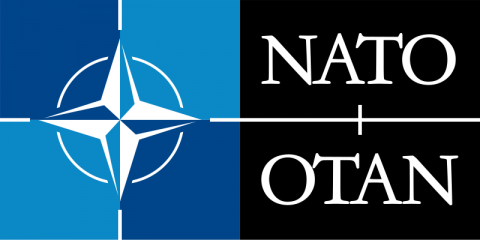From the weekend Dispatch from the editors of The Line, some indication that even the American legacy media are tired of Canada’s generations-long peace dividend freeloading at the expense of our allies:
American media doesn’t often notice Canada, and as much as Canadians like to whinge about being ignored, the lack of interest in our affairs from south of the border is usually a good thing. If you’re looking for a rule of thumb here, it’s this: attention from the Americans is almost always negative.
A case in point this week was an editorial published by the Wall Street Journal on Wednesday, headlined “Canada is a military free-rider in NATO”. The subhed was “Ottawa still spends only a pathetic 1.38% of GDP on defense”. The editorial makes a number of points almost all of which will be familiar to readers of the Line, which are all variations of: Canada shirks its NATO commitment to spend two per cent of GDP on defence, while engaging in relentless virtue signalling and moral preening, both domestically and to its allies. It treats national defence as social project, while doing little to nothing in the way of actually projecting the power that is needed to defend the values it purports to advance.
There are some absolutely killer lines in the editorial, beginning with the lede: “Canadian Prime Minister Justin Trudeau was in Lithuania this week for the annual NATO summit, but it’s too bad there wasn’t a junior table where he could sit.” A few paragraphs later: “Last week Ottawa put in its two cents against cluster munitions. But asking its citizens to meet their actual obligations to the cause of freedom is apparently too much to ask.” And then: “Nowadays Ottawa can be counted on to ‘fight’ for human rights, which is to say that it talks a lot about them.”
Again, for anyone paying attention here in Canada, these are not new arguments. But the editorial does add one twist at the end, suggesting that if Canada can’t be bothered keeping its NATO commitments, then perhaps it should be kicked out of the G7 and replaced by a country willing to play a leadership role. They suggest Poland as a possibility.
Reaction in Canada has been surprisingly muted. On our own social media feeds, we noted a lot of rather sad attempts at dismissing the editorial — the paper is a Rupert Murdoch owned rag; this is Trumpist nonsense; Europeans juice their defence spending through useless mandatory service requirements. But curiously, we didn’t see anyone try to pull a Julie Dzerowicz and argue that, despite all evidence to the contrary, Canada is actually punching above its weight in NATO.
Look, some of us here at The Line have been reading harsh editorials on Canada’s defence spending for decades. (We’ve written a few, too!) And we’ve never seen anything remotely this harsh from an American outlet. This is absolutely devastating stuff, and it can’t be simply shrugged off because of the source.
A bit of history: In 1995, the Wall Street Journal published an editorial calling Canada “an honorary member of the Third World” in an editorial that also referred to the Canadian dollar as the “northern peso”. This was in response to Canada’s national debt and tax rates hitting unsustainable levels. We were an economic basket case, and the Americans were starting to notice.
Lots of Canadian commentators dismissed the editorial on the grounds that the WSJ was just pushing the supposedly-discredited Reagan/Thatcher/Mulroney “neoliberal” agenda. But later that year the Chrétien government, with Paul Martin as finance minister, introduced one of the most significant budgets in Canadian history. They slashed federal spending in ways not seen since the end of the Second World War, slashed the public service, gutted the department of defence. But three years later they had balanced the budget, inaugurating an extended period of federal fiscal responsibility that lasted until the election of the Trudeau Liberals in 2015.
The point is not that there’s a cause and effect here — Jean Chrétien and Paul Martin didn’t sit down and go “oh shit, the Journal has weighed in, we have to do something”. It’s that when serious American media get around to noticing stuff about Canada, it is usually because the stuff they are noticing has become such a problem for other countries that our national Emperor’s New Clothes routine is no longer tenable. It is a sign that things have to change, and quickly.
Remember, the Liberal government doesn’t deny that Canada is a NATO laggard and a free rider on defence. Justin Trudeau has admitted as much, both publicly and privately. But up till now, his attitude has been to sort of smirk at the Americans, give his usually smarmy shrug, and say “what are you going to do about it?”
What the Wall Street Journal editorial does is suggest that there could be real consequences for our professed indigence. It is one thing to be left out of AUKUS, which the Liberals continue to falsely characterize as a submarine procurement deal. Getting kicked out of the G7 would something else entirely — it’s the sort of thing the sorts of people who vote Liberal tend to care about.
Canada’s current attitude to collective defence is not sustainable. Our allies have noticed. Either we change, or our allies will change things for us.





